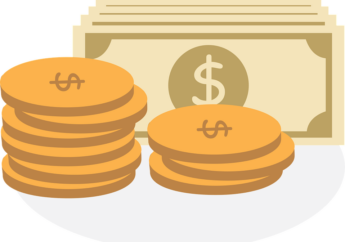How Payday Loans Impact Your Finances: Managing And Repaying Responsibly
by Ankita Tripathy Loans & Credit 20 December 2023

Payday loans can seem like a quick and convenient solution when unexpected financial challenges arise. However, it’s crucial to understand how these short-term loans work and their potential impact on your overall financial well-being. Let’s unravel the dynamics of payday loans and explore their implications for your finances.
At their core, payday loans are small-dollar, short-term loans designed to provide quick cash to cover immediate expenses. The process typically involves borrowing a relatively small amount, with the understanding that you’ll repay it on your next payday. While these loans offer rapid access to funds, they often come with high fees and interest rates.
When you find yourself in a tight spot, turning to payday loans for a financial lifeline might be tempting. However, it’s essential to weigh the costs against the benefits. Payday loans are known for their exorbitant interest rates, which can result in substantial financial burdens if not managed carefully.
Before opting for a payday loan, consider alternative options, such as negotiating with creditors, exploring assistance programs, or seeking support from friends and family.
The Impact on Your Finances: Navigating Repayment and Managing Debt Responsibly

Once you’ve taken out a payday loan, the impact on your finances extends beyond the initial relief. Managing the repayment responsibly becomes crucial to avoid falling into a cycle of debt.
As you navigate the repayment process, consider the following strategies to minimize the financial impact:
1. Create a Realistic Repayment Plan
Before taking out a payday loan, assess your ability to repay it on time. Create a realistic repayment plan that aligns with your income and other financial obligations. Avoid borrowing more than you can comfortably repay, as this can lead to a cycle of borrowing and escalating debt.
2. Understand the Terms and Fees
Payday loans often come with complex terms and high fees. Take the time to thoroughly understand the terms of the loan, including the repayment schedule and associated fees. Being aware of the total cost will help you make informed decisions and avoid surprises during the repayment process.
3. Prioritize Repayment
Make repaying the payday loan a top priority in your budget. Allocate funds specifically for loan repayment to ensure that you meet the terms of the agreement. Consider cutting back on non-essential expenses to free up additional funds for repayment.
4. Seek Financial Counseling
If you struggle to manage payday loan repayment and other financial obligations, consider seeking assistance from a financial counselor. These professionals can guide budgeting, debt management, and alternative financial strategies.
Navigating Financial Wellness: Long-Term Strategies Beyond Payday Loans
While viva payday loans reviews say a lot, and those financial assets can offer a quick fix in times of need, it’s essential to view them as a short-term solution rather than a long-term financial strategy. To enhance your financial wellness and reduce reliance on payday loans, consider implementing the following long-term strategies:
An emergency fund can provide a cushion to handle unexpected expenses without resorting to payday loans. Aim to save at least three to six months’ worth of living expenses in your emergency fund to cover unforeseen circumstances.
Enhance your financial literacy to make informed decisions about your money. Understanding budgeting, saving, and investing empowers you to navigate financial challenges effectively and avoid pitfalls like payday loans.
Explore alternative financial products that offer more favorable terms than payday loans. Credit unions and community banks often provide small-dollar loans with lower interest rates and more reasonable repayment terms.
If you’re facing financial difficulties, proactively communicate with your creditors to explore options for temporary relief. Many creditors are willing to negotiate payment plans or offer hardship assistance to help you navigate challenging times.
Navigating the Loan Landscape: A Comparative Analysis of Payday Loans and Traditional Lending Options

As individuals face financial challenges, it’s crucial to understand the landscape of available lending options. Payday loans, often chosen for their speed and accessibility, exist alongside traditional lending avenues. Exploring the differences between these options can empower borrowers to make informed decisions that align with their financial goals.
Payday loans, characterized by their quick approval and minimal eligibility requirements, cater to individuals seeking immediate cash in emergencies. While these loans offer speed, they come with high costs, including elevated interest rates and fees. On the other hand, traditional lending options, such as personal loans or lines of credit from banks or credit unions, may have stricter eligibility criteria but often come with lower interest rates and more favorable terms.
One key aspect to consider is the impact of credit history on loan accessibility. Payday loans typically do not heavily weigh credit scores during approval, making them accessible to individuals with poor credit. Traditional lenders, however, often consider credit history as a significant factor in determining eligibility and interest rates. Understanding the role of credit history in lending decisions can influence borrowers’ choices based on their unique financial situations.
The Borrower’s Dilemma: Weighing the Pros and Cons of Payday Loans and Traditional Options
As borrowers navigate the loan landscape, they often face a dilemma, weighing the pros and cons of payday loans against traditional lending options. Payday loans offer quick access to funds, especially for those with urgent needs and less-than-stellar credit. However, the high costs associated with these loans raise concerns about long-term financial sustainability.
While potentially offering more favorable terms, traditional lending options may pose challenges related to approval times and eligibility criteria. Borrowers with excellent credit histories may find these options more accessible, but those with less-than-perfect credit may encounter hurdles. The decision between payday loans and traditional options hinges on an individual’s unique circumstances, financial goals, and the urgency of their financial needs.
Empowering Borrowers: Financial Education and Decision-Making
Empowering borrowers to make informed decisions involves enhancing financial education and literacy. Understanding the intricacies of payday loans and traditional lending options enables individuals to navigate the borrowing landscape confidently. Financial education should encompass interest rates, fees, repayment terms, and the long-term impact of borrowing decisions on overall financial health.
By fostering financial literacy, individuals gain the knowledge needed to assess their financial situations, evaluate loan options, and make decisions aligned with their goals. Financial education also encourages responsible borrowing practices, emphasizing the importance of only borrowing what one can afford to repay and considering alternative solutions before using loans.
Responsible lending practices play a pivotal role in safeguarding the financial well-being of borrowers. While payday loans and traditional lending options coexist, the emphasis on responsible lending transcends the type of loan chosen. Lenders, whether offering payday loans or traditional options, must provide transparent information, fair terms, and reasonable repayment expectations.
The Role of Transparency in Lending
Transparent communication is a cornerstone of responsible lending. Lenders should communicate the terms and conditions of loans, including interest rates, fees, and repayment schedules. Borrowers have the right to fully understand the cost of borrowing and the potential implications for their financial futures. Transparency builds trust between lenders and borrowers, fostering a more equitable lending environment.
Responsible lenders actively contribute to the financial well-being of their clients by promoting financial education. This involves providing resources, tools, and guidance to help borrowers understand the impact of their borrowing decisions. Lenders can offer educational materials on budgeting, debt management, and smart financial practices, empowering borrowers to make sound financial choices beyond the loan transaction.
Recognizing that financial circumstances can change, responsible lenders offer flexible repayment options and support mechanisms. This includes the ability to adjust repayment schedules or explore alternative arrangements in cases of financial hardship. By fostering a collaborative approach to repayment, lenders contribute to the overall financial resilience of their clients.
In conclusion, responsible lending practices extend beyond the type of loan and encompass transparency, financial education, and support for borrowers. Whether individuals opt for payday loans or traditional lending options, cultivating responsible borrowing habits and fostering financial well-being should be at the forefront of lending practices. Borrowers and lenders play integral roles in shaping the lending landscape promoting financial empowerment and resilience.
Conclusion: Navigating the Complexities of Payday Loans for Financial Well-Being
In conclusion, while payday loans may provide immediate relief in financial emergencies, understanding their impact is crucial for long-term financial well-being.
By unraveling the dynamics of payday loans, responsibly managing repayment, and implementing proactive financial strategies, you can navigate the complexities of your finances and build a more secure financial future. Remember, financial health is a journey, and each decision you make shapes your overall well-being.
Read Also:







































































































